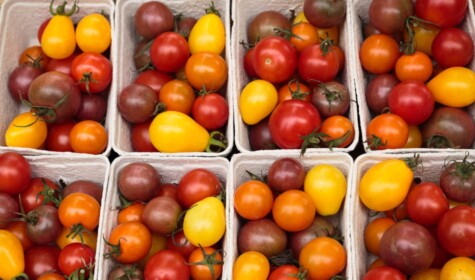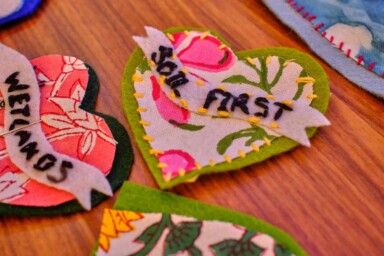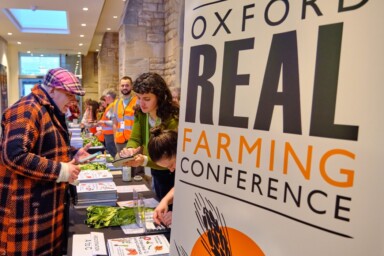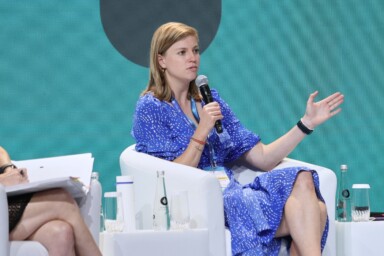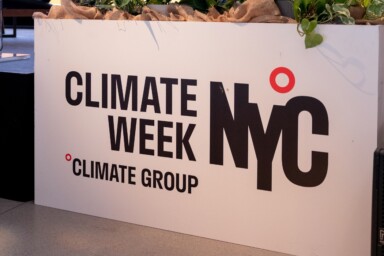We bring you an update from this year’s Wales Real Food and Farming Conference, where local food networks were a big topic of conversation. Alicia Miller, who runs an organic veg box scheme in West Wales, shares her view on this year’s event, which included the SFT’s own session on the Global Farm Metric.
This year’s Wales Real Food and Farming Conference kicked off with a wobbly start – weather, serious weather, appeared almost out of nowhere at around 7 am, as if it had decided to throw a temper tantrum for no reason other than wanting to sow chaos. Almost everyone, except those who arrived the night before, had trouble travelling with heavy snow in places, ice, hail and sleet making roads treacherous at best and terrifying at worst. Was this an omen of things to come…
Certainly not! By noon, most of the sleet and snow had melted away, and though many people were a bit late arriving, there was sunshine by midday. There were, however, some hitches – Derek Walker, the Future Generations Commissioner for Wales, who was first up on the podium to give the keynote speech, got stuck in his car and couldn’t get to the Conference. But with a valiant effort and the wonders of Zoom, Walker was still able to give his speech, no doubt shivering in the car.
Walker’s main concern is the levels of obesity and food poverty in Wales, and he sees the need for a progressive food plan. But the Welsh Government is moving only slowly towards addressing the issues that concern Walker. There is no food strategy yet from Government, though they have recently published, Food Matters, which outlines policies and programmes that have been implemented.
What has been a significant success is the involvement now of six councils that are working to get organic produce into schools in Wales, to improve the quality of school meals. Patrick Holden, the SFT’s CEO, has been working closely with the Welsh Veg in Schools project and is growing carrots for local Carmarthenshire schools on his farm, Bwlchwernen Fawr. Derek Walker’s commentary was followed by a group of young Ceredigion school children who spoke about their visit to Bwlchwernen Fawr and what they took away from it – they asked why Patrick was taking his carrots to Carmarthenshire instead, when they were needed in Ceredigion? “This made the children of Ysgol Y Dderi very cross! Why can’t we have Bwlchweren Fawr carrots?”, said one young child. Ceredigion council has just come on board with the Welsh Veg in Schools project, a little late to the party – so the children’s query may help commit the council to the project. The children were further appalled to learn that most of the vegetables they eat in school come from anywhere but Wales – except for the potatoes, leeks and swedes. So, there is hope in Wales growing from the minds of children for better, local food in their school. Wales is indeed, ahead of the field, as Walker commented: “There is energy and action on food in Wales”.
Denise Bentley of the First Love Foundation was the second day’s keynote speaker. Bentley started a food bank in Tower Hamlets after surviving a catastrophic brain injury. Her injury changed her perspective on her life, and she became engaged with wider social injustice issues. She now works holistically with people in need, helping them not just to access food, but to transform their lives and help them get out of poverty. Denise discussed the ways in which the benefit system in the UK does not work for people in poverty and the ways in which it actively seeks to shut down access to help. The First Love Foundation works with a struggling constituency to ensure that people receive the support they need to pull themselves out of crisis. Her talk was incisive and inspiring and her argument was that helping people to access food is only a starting point – what is truly needed is comprehensive support to help people transform their lives.
The conference, of course, had an array of interesting and lively panel discussions and presentations. There was a dominance of discussion around food and its issues, exploring everything from food resilience and sustainable procurement to enabling wider participation in food systems change. It was a testament to the vigour and momentum that is driving change in many areas of Wales, in relation to food – real food, going into real food systems. However, this, arguably, left less room for a focus on farming, and perhaps there should have been more balance in this. One grower I spoke to commented: “As a grower it felt like maybe there were more sessions (and probably more attendees) related to the wider food system rather than directly farming and growing, but equally, it’s really important that they’re doing their stuff to build a better food system, so that’s not necessarily a bad thing.”
Patrick Holden participated in the session on ‘Farm Data to Empower Welsh Farmers’. Farmers have access now to more data than ever before, but there are issues of access and control that must be negotiated. The session brought together the Soil Association Exchange and the Global Farm Metric in a conversation around the value of climate, nature and socially positive farming and how measurement can be meaningfully leveraged to evaluate the positives and negatives of farming practice and empower farmers to better understand their impacts and value.
A new and interesting addition to the WRFFC this year, was the presence of Carreg Creative, a collective of artists, Lindsey Colbourne and Lisa Hudson, working with artists Ffion Jones, Elinor Gwynn and Sian Barlow who work in diverse and socially engaged ways. Invited to participate in the WRFFC, they created a welcoming space to relax in, in the foyer of the arts building, inviting people to draw on the table, converse and exchange thoughts and ideas and think outside of the box. Carreg Creative was really excited by the opportunity to support WRFFC with an arts strand at the conference, commenting that “We are well aware of the challenges faced by the food and farming sectors and by Wales’ rural communities, and we are grateful to WRFFC for having the courage to reach out and to try something creative and different, at a time when the problems feel so urgent and difficult.”
This year’s conference was also very lucky to have chef Barny Haughton catering lunch on both days of the conference and providing a stunning evening meal at Bwlchwernen Fawr. Both lunch and dinner were sourced from local food producers that Barny works with, and the food was fantastic all round. The WRFFC has worked very hard over the last two years to ensure that the conference meals are local, sustainable and absolutely delicious – because really, isn’t that what it is all about? Good food is so essential to our health, our well-being and our happiness and that comes from our farmers and growers and land workers who understand the land and all that lives on it. That’s something we should never forget!
